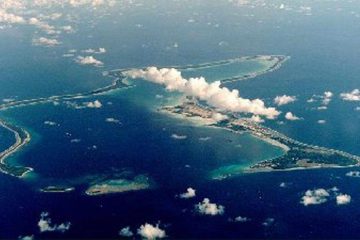Kazakhstan: A Country of Growth and Challenges

Introduction
Kazakhstan, the largest landlocked country in the world, has been gaining attention on the international stage due to its strategic location, vast natural resources, and ongoing economic reforms. As the nation works to bolster its influence in Central Asia and beyond, understanding its current developments and challenges is imperative for grasping the geopolitical landscape of the region.
Current Events and Economic Growth
In recent years, Kazakhstan has made significant strides in diversifying its economy, which heavily relies on oil and gas exports. In September 2023, the Kazakh government announced a new economic policy aimed at attracting foreign investment through various incentives, including tax breaks and simplified regulations. This policy is part of the ‘Economic Growth Strategy 2025’ initiative, which seeks to position Kazakhstan as a regional hub for trade and finance.
Moreover, the World Bank projected a 4.2% growth rate for Kazakhstan’s economy in 2024, citing increased investments in infrastructure and digital technology. As global markets begin to stabilize after the pandemic, Kazakhstan aims to take advantage of this scenario by enhancing its logistical capabilities, particularly through initiatives such as the construction of the Central Asia International Trade Centre.
Geopolitical Significance
Kazakhstan occupies a unique geopolitical position between Russia and China, which has led to a delicate balancing act in its foreign relations. The nation is a member of several international organisations, including the Eurasian Economic Union (EAEU) and the Shanghai Cooperation Organisation (SCO), allowing it to maintain strong ties with both neighbours while also seeking to establish stronger relationships with Western powers.
In October 2023, Kazakhstan hosted the annual Astana International Forum, bringing together leaders to discuss regional security, economic cooperation, and sustainable development. This forum underscored Kazakhstan’s role as a key player in regional diplomacy and its commitment to fostering dialogue among diverse nations.
Challenges Ahead
Despite its positive outlook, Kazakhstan faces significant challenges, such as corruption, human rights concerns, and the need for political reforms. In light of ongoing protests and public discontent over social issues, the government has pledged to reform its political landscape, including introducing greater public participation in decision-making processes.
Conclusion
The future of Kazakhstan is one of promise, driven by its natural resources and strategic initiatives. However, for it to realize its ambitions fully, addressing internal challenges, fostering an inclusive political system, and maintaining a stable geopolitical balance will be essential. As global attention turns towards Central Asia, Kazakhstan’s journey could serve as a critical case study in developmental politics and economic resilience.








